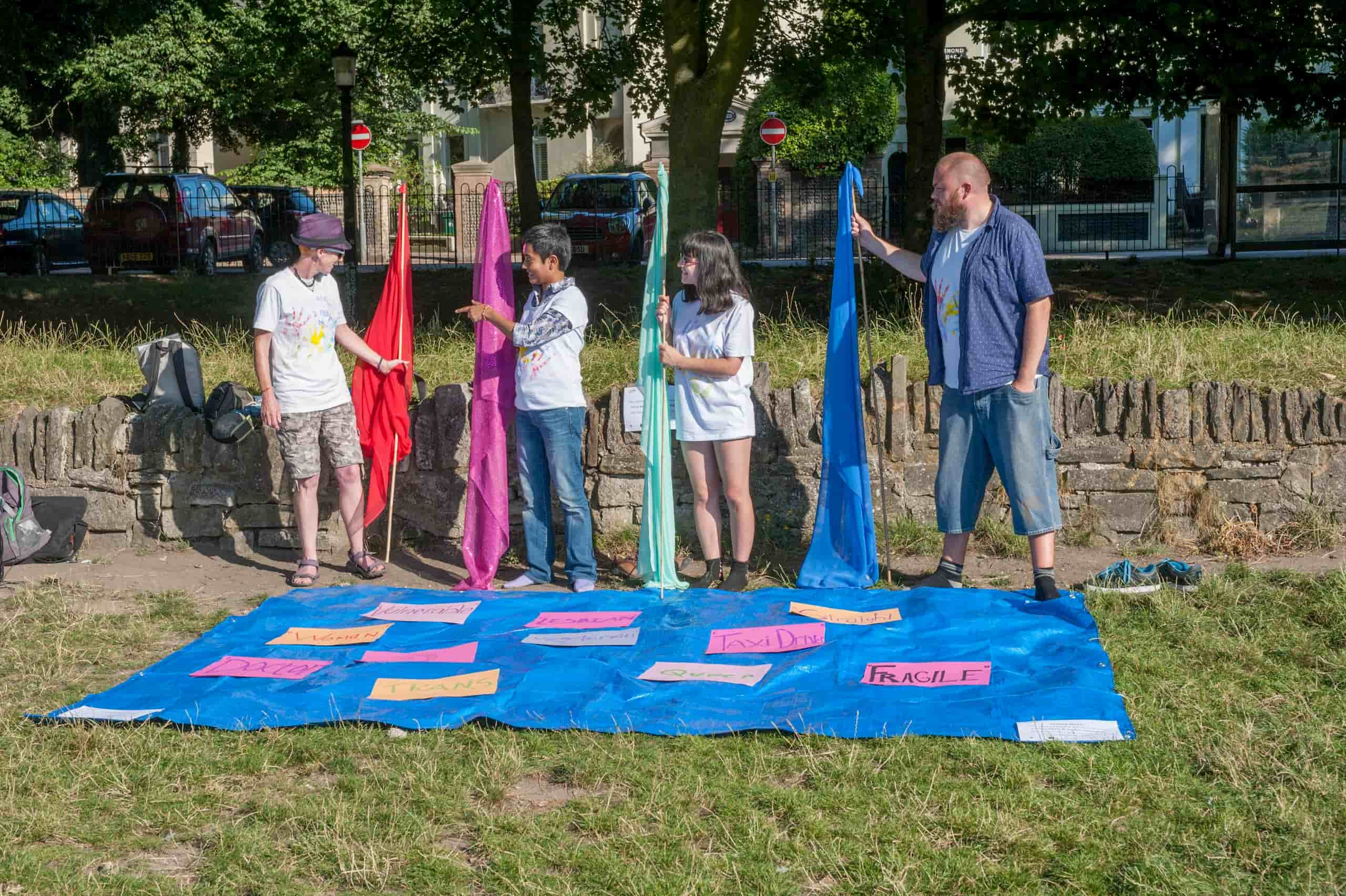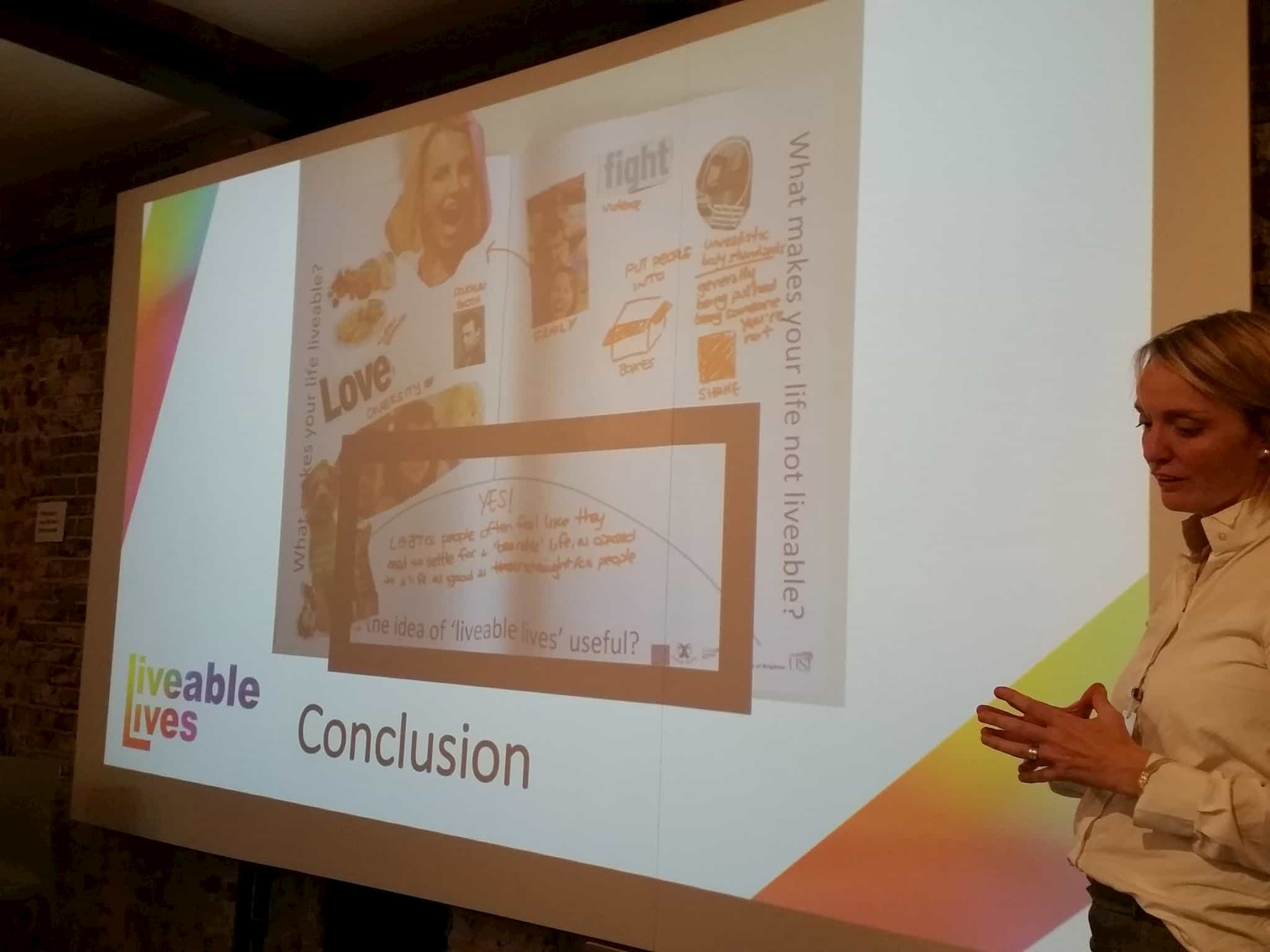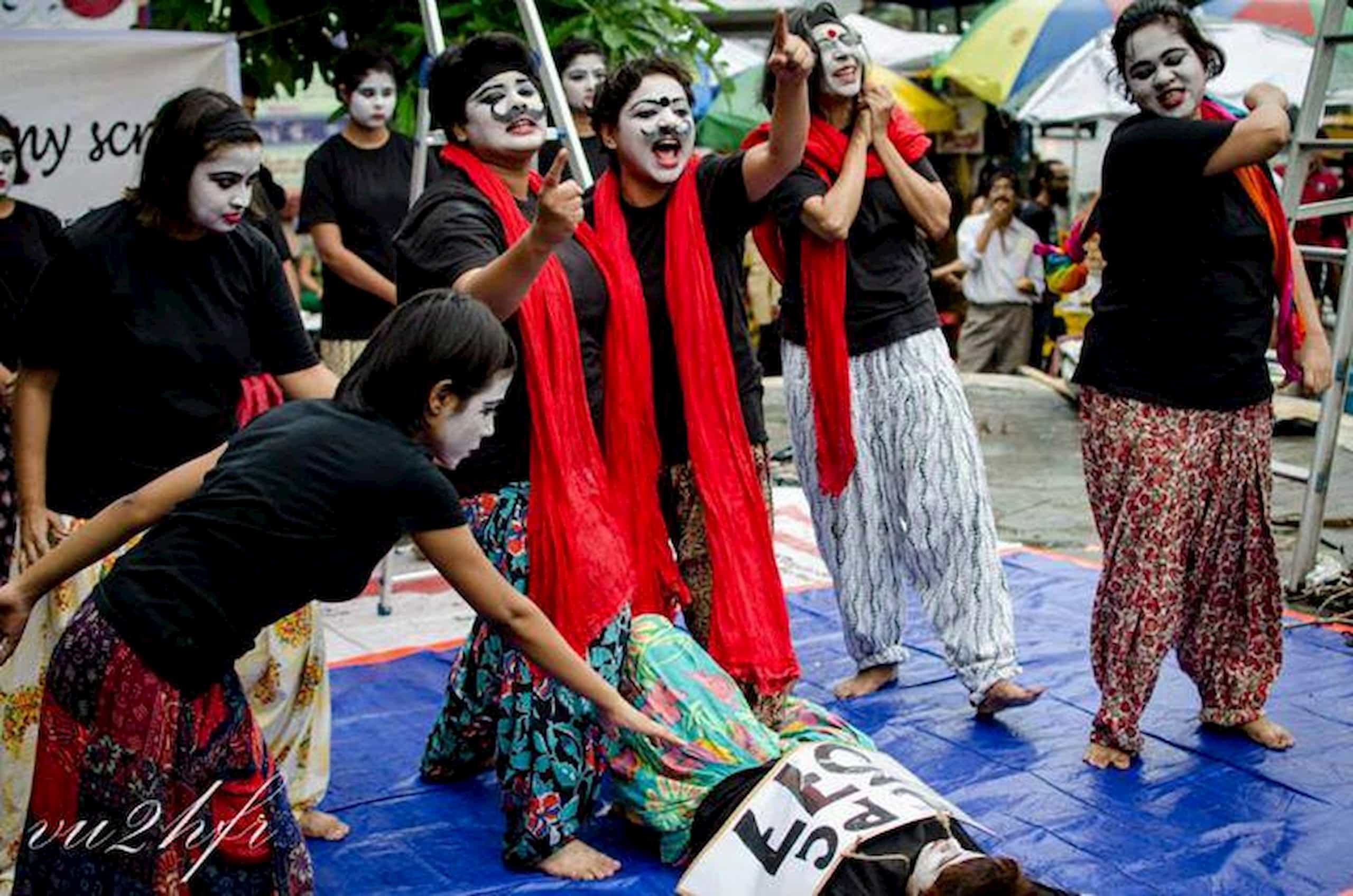Downloads
Research by geographers explored difficulties and inequalities experienced by LGBTQ people in England, which was then used as the basis for an international collaboration to innovate positive changes in the everyday lives of LGBTQ people in Kolkata and Brighton.
Challenge
Despite legislative changes to improve the rights of LGBTQ people in both the UK and in India such changes are inadequate for combatting the social exclusion of LGBTQ people without wider social transformation (Sappho for Equality, 2016). In addition, LGBTQ rights are increasingly used as a proxy for understanding social and economic development; understanding what makes everyday life “liveable” to LGBTQ people around the world can lead to better support of their needs.

Project participants preparing the 'Identity Twister' activity in England
Solution
Research by Professor Kath Browne (now University College Dublin, formerly University of Brighton) and Dr Niharika Banerjea (Ambedkar University) with Sappho for Equality, Leela Bakshi and Dr. Nick McGlynn sought to understand how to increase the “liveability” of LGBTQ lives to be “more than bearable”, and increase public awareness of this.
Professor Browne and Dr. Banerjea designed a participatory research project based in both India and the UK to identify what makes life liveable for LGBTQ people and understand exclusion. The project sought to understand what created a sense of marginalisation amongst LGBTQ people and find solutions to address that, in particular developing new ways of thinking and talking about the concerns of LGBTQ people, to help inform new initiatives and strategies beyond the equalities agenda (Sappho for Equality, 2016)
Researchers created an app provided discussion boards for LGBTQ participants, and encouraged them to create videos for the public about what makes their lives liveable. These were shared online.
Interviews and focus groups with marginalised LGBTQ people, online qualitative questionnaires, and shorter SMS/app questionnaires helped researchers to understand what makes life more or less liveable for these LGBTQ people in both countries. The project’s partners, Sappho for Equality, released a report on the research in West Bengal, which shared the day to day experiences of participants and found that a wide range of factors contributed to a sense of participants’ lives being “unliveable”, including violence, sexual violence, social rejection and the legal and political situation.
The project also sought to engage with local perceptions and attitudes to LGBTQ people via street theatre workshops. In Brighton, workshops engaged with difficulties faced in the lives of UK LGBTQ people, and in Kolkata also focused on raising awareness and visibility of both LGBTQ people and what makes their lives liveable. Outputs included a film called I Script, My Script, which showed the progress and challenges of engaging the public with the street theatre work.
The project resulted in the Make Liveable Lives conference in Brighton in 2016, drawing together project partners and stakeholders for knowledge exchange including the release of the project report Acting on Equalities.
Photograph by Nilanjan Majumdar - project volunteers participate in street theatre in India
Benefits
Policy insight
In the UK, the team researched local authority compliance with key equalities legislation. In their project report, Acting on Equalities, Liveable Lives found more than half of all local authorities across England were not compliant with the Equalities Act 2010 and associated 2011 Government Equalities Office guidance, particularly with regard to making information available and declining work on equalities
The report into local authority compliance prompted a question in the UK Parliament from Caroline Lucas MP, raising the profile of the issue to the national level. This led to the Equalities and Human Rights Commission writing to the Local Government Association to draw attention to the research findings and ensure local government adherence to the legislation. Local councils participating in the research asked the research team to provide support in ensuring the statutory provision of public services and compliance with the Equality Act 2010.
In Kolkata, legal change was found to be relatively less important than social recognition in contributing to liveability/unliveability, providing support for the social transformation approach taken by the partner organisation Sappho for Equality

Prof Browne presenting at the "Making Liveable Lives: ves: Is Sexual and Gender Legislative Equality Enough?" project event in 2016
Raising awareness and improving understanding
Participating in the project enabled India-based charity Sappho for Equality to raise awareness of the experiences of participants. The project report and street theatre work conveyed the experiences of participants and helped identify and convey to the public what could constitute ‘liveable lives’ for participants in Kolkata.
The project was also able to raise public awareness of LGBTQ issues and challenges, including engagement through street theatre performances. The project was covered in local media in Brighton, including print and radio coverage
The project website hosts outputs and information about the research, and video outputs from the project were made available on YouTube, including statements from some participants about what makes their lives liveable as well as recordings of performances and I Script My Script.
Further reading
The project team published this 2015 paper reflecting on the research and methods, a paper in 2019 on the implementation of equalities legislation, and a 2020 paper on liveability and struggle.
Kath Browne’s lecture on the research to the British Science Festival 2017.
Share this resource
This is an open access article under the terms of the Creative Commons Attribution License (CC BY NC 4.0), which permits use, adaptation, distribution and reproduction in any medium or format, provided the original work is cited and it is for non-commercial purposes. Please contact us for other uses.
How to cite
Royal Geographical Society (with IBG) (2020) Liveable Lives: participatory research into lived LGBTQ experiences in England and West Bengal, India. Available at www.rgs.org/liveablelives Last accessed on: <date>


